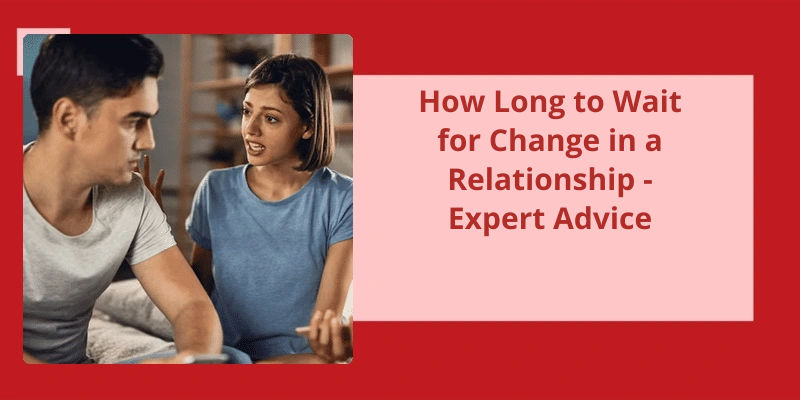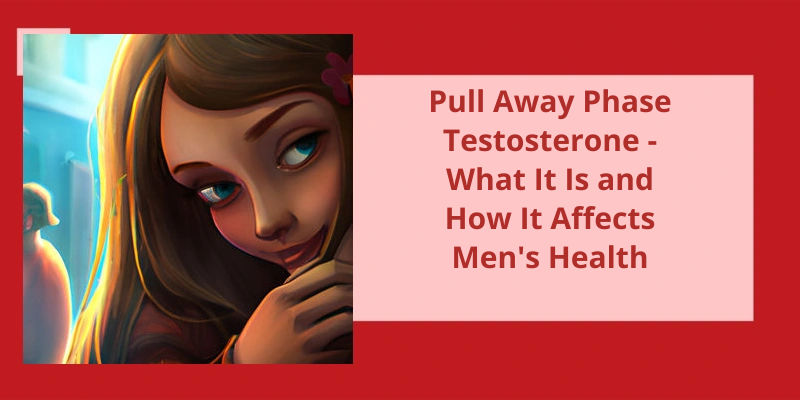Relationships are complex and require a lot of effort and dedication to make them work. Whether it’s dealing with conflicts, communicating effectively or growing together, relationships demand patience and understanding. However, not all relationships are meant to last forever, and sometimes, it becomes necessary to part ways. While it can be tempting to seek out a new relationship immediately after a breakup, it’s important to take a step back and allow yourself time to heal and regain perspective. Jumping into a new relationship too soon can lead to repeating the same patterns and mistakes of the past. Therefore, it’s advisable to take time, significant time, before entering a new relationship. While there’s no magic number for how long to wait before beginning a new relationship, it’s suggested that one should wait a month for every year that they were in the previous relationship before jumping back into another one. By doing so, individuals can increase their chances of building a healthy and successful relationship in the long run.
What Is a Healthy Amount of Time to Wait Between Relationships?
Others recommend waiting six months to a year to focus on personal growth and healing before putting energy into a new relationship.
It’s important to take the time to reflect on what went wrong in the previous relationship and address any personal issues that may have contributed to it’s end. This self-reflection and personal growth won’t only benefit any future relationships but also help individuals become more confident and content on their own.
Jumping into a new relationship too quickly can be a way of distracting oneself from the pain and discomfort of a breakup, but it can also lead to repeating patterns and making the same mistakes in choosing partners. Taking the time to heal and reflect can break these patterns and lead to healthier, more fulfilling relationships in the future.
Of course, everyone’s healing journey is different, and there’s no one-size-fits-all timeline for waiting between relationships. It’s ultimately up to each individual to listen to their own emotions and needs and make a decision based on what feels right for them.
Additionally, it’s important not to rush into a new relationship because of societal pressures or expectations. Being single can be a powerful time of growth and exploration, and there’s no rush to get back into a relationship just because it’s what others expect or desire.
It’s important to prioritize personal growth and listen to one’s own emotions and needs in determining when to start a new relationship.
How to Recognize if You Are Ready for a New Relationship?
One can recognize if they’re ready for a new relationship by checking their emotions, being honest with themselves about their desires, being emotionally stable and healed from past relationships, and having the time and energy to fully commit to a new relationship.
It’s not uncommon to want your partner to change certain behaviors or habits that may be causing issues in the relationship. However, it’s important to approach this topic with sensitivity and understanding, keeping in mind that major personality traits or values may be difficult or even impossible to change. Here are some tips for navigating this conversation in a healthy way.
Can I Ask My Boyfriend to Change?
It’s important to approach the topic of change with empathy and understanding. Your partner may feel defensive or attacked if they feel like theyre being asked to change something about themselves. It’s important to start the conversation by expressing how you feel and what youre hoping to achieve. For example, rather than saying “I don’t like how you dress,” try saying “I think it would be really sexy if you wore more leather jackets like when we first started dating.”
It’s also important to consider whether the change youre hoping for is realistic and attainable. If youre asking your partner to change something about themselves that’s deeply ingrained or part of their identity, it may not be possible for them to do so. For example, if youre hoping to change your partners political views, it’s important to respect that those views are a reflection of their values and beliefs.
Another important aspect of asking for change is being willing to compromise. Your partner may be willing to make some changes, but they may also have their own needs and boundaries that you need to respect. When having the conversation, be open to hearing your partners perspective and finding a solution that works for both of you.
It’s also important to consider the power dynamic in your relationship. If youre constantly asking your partner to change and they feel like theyre walking on eggshells around you, it’s possible that youre exhibiting controlling or abusive behavior. Make sure that youre not using the request for change as a way to exert power over your partner.
It’s important to recognize when waiting for someone to change is no longer productive. While it may be difficult to let go, it’s important to prioritize your own well-being and take control of your own life. Rather than waiting for someone else to make a change, it’s time to take matters into your own hands and make positive changes for yourself.
Is It Okay to Wait for Someone to Change?
Waiting for someone to change can be a miserable experience. It’s easy to fall into the pattern of hoping and waiting for someone to become the person you want them to be. However, this is often a futile and frustrating process. People change when they want to, not when you want them to. Therefore, it’s often best to stop waiting for them to change and focus on your own personal growth. It’s important to take responsibility for your own well-being and happiness.
Sometimes people stay in relationships that are unhealthy and abusive because they hope their partner will change. However, this is a risky strategy. In some cases, the person may never change and the victim of the abuse may be stuck waiting for something that will never happen. In other cases, the abuser may appear to change, but will eventually revert back to old patterns of behavior. It’s important to seek support and leave situations that are harmful to your mental and physical health.
It’s also important to recognize that change is difficult and doesn’t happen overnight. It’s one thing to hope for positive change in someone, but it’s another to wait around for it. It’s often more productive to focus on yourself and make positive changes in your own life. You might find that by doing so, you inspire the other person to make positive changes as well. Or, you may find that the relationship is no longer viable and it’s time to move on.
Ultimately, waiting for someone to change can be a waste of time and energy. It’s important to focus on your own growth and development, rather than trying to change someone else. If the other person isn’t willing to change, it’s time to reevaluate the relationship and decide if it’s worth continuing. Remember that you deserve to be treated with kindness and respect, and that it’s up to you to demand those things in your relationships.
How to Recognize When Waiting for Someone to Change Is Becoming Unhealthy for You
- You find yourself constantly worrying about the other person’s behavior or actions
- You feel anxious or stressed when waiting for the person to change
- You’ve tried to communicate with the person but there’s no improvement
- You’ve started compromising your own values or needs in order to accommodate the other person
- You feel like the relationship has become one-sided and you’re putting in all the effort
- You’ve begun to resent the other person for not changing or improving
- You’ve noticed that waiting for the person to change is affecting your own mental health and well-being
- You’ve been waiting for a prolonged period of time with no signs of progress or change
- You’ve sought advice or guidance from friends or professionals and they’ve advised you to move on
- You feel like you’re stuck in a cycle of waiting and hoping, with no real solution in sight
When it comes to discussing the topic of a relationship, timing is key. While some may be comfortable bringing it up after a few weeks, others may need months to feel ready. Regardless of where you fall on the spectrum, it’s essential to approach the conversation with care and consideration. In the next section, we’ll explore some tips for how to build yourself up for the discussion, no matter when it happens.
Is 3 Months Too Soon to Ask for a Relationship?
The question of whether it’s too soon to ask for a relationship is a tricky one to answer because, as with every relationship, there isnt a one-size-fits-all approach. However, as a general rule, most experts agree that two months in should be a safe amount of time to bring up the topic. It’s enough time to get to know someone a bit better, but not too long that the other person feels youre leading them on.
That being said, if it feels right to you to have the conversation earlier, theres no harm in bringing it up sooner. Just be sure to approach it with care and sensitivity. Remember that at the end of the day, the other persons feelings are just as important as your own, so be prepared to listen and adjust your expectations if necessary.
If youre not quite ready to have the conversation yet, there are a few steps you can take to build yourself up for it. Spend some time reflecting on what you want from the relationship and where you see it going. Be honest with yourself about your feelings, and try to get a sense of where the other person is at as well.
Communication is key in any relationship, so make sure youre communicating openly and honestly with the other person. Be clear about your intentions and what youre looking for in a relationship, but also be willing to listen and compromise. Remember that a relationship is a partnership, so it’s important to find common ground and work together towards a shared goal.
Take the time to get to know the other person and build a strong foundation of trust and communication. If it feels right, go ahead and have the conversation. If not, take the time you need to feel confident and secure before taking that next step.
Signs That Show You Are Ready to Have the Relationship Talk
Here are some signals that suggest you’re prepared to have a serious conversation about your relationship: you’ve a clear idea about what you want from a relationship, you’ve developed trust and strong communication with your partner, you’ve spent ample time getting to know each other, you feel secure and confident in your feelings, and you’re ready to commit to a future with your partner.
In order to have a healthy and successful relationship, it’s crucial to address any issues that arise and work towards a solution as a team. However, waiting for your partner to change isn’t a sustainable approach and can lead to further problems down the line. It’s important to have open and honest communication in order to build trust and prevent resentment from forming.
Should You Wait for Your Partner to Change?
If you find yourself waiting for your partner to change, it may be a sign that there are deeper issues at play in the relationship. It’s important to reflect on your own feelings and needs and communicate them clearly to your partner. It’s also important to listen to your partners perspective and try to understand where theyre coming from.
However, it’s also important to recognize that people can change, but it’s not always easy and it’s not necessarily something that can be forced. Change often comes from within and it requires a willingness to confront and work on personal issues. If your partner is resistant to change or unwilling to work on issues in the relationship, it may be a sign that the relationship isn’t healthy or sustainable.
It’s important to prioritize your own emotional well-being and make decisions that are in line with your values and goals. If youre feeling stuck or unsure about how to move forward, it may be helpful to seek the support of a therapist or counselor who can offer guidance and help you navigate the complexities of your relationship.
Balancing Individual Needs and Relationship Dynamics: Finding a Healthy Middle Ground
- Understanding your individual needs and boundaries
- Understanding your partner’s individual needs and boundaries
- Communication and compromise
- Respect and empathy
- Self-care and self-awareness
- Recognizing and addressing power imbalances
- Maintaining open and honest communication
- Regular check-ins to assess the health of the relationship
- Working together to find a balance that works for both individuals
Conclusion
Ultimately, the decision of when to pursue a new relationship after the end of a previous one is a deeply personal one and depends on a multitude of factors unique to each individual. However, it’s important to remember that healing takes time, and rushing into a new relationship too quickly can lead to repeating negative patterns and not fully addressing the emotions and issues that may have led to the end of the previous relationship. Taking significant time to reflect, process, and grow can ultimately lead to healthier and more fulfilling relationships in the future. So while it may be tempting to jump back into the dating pool immediately after a breakup, it’s important to prioritize self-care and take the necessary time to fully heal and grow before pursuing a new relationship.






